A long time ago, Lu Yang had read Ma Boyong's "The Wind Rises in Longxi" and "liked the historical view and the brushstrokes of character descriptions". Coincidentally, in the first two years, Xinli Media found Lu Yang. They obtained the copyright of the film and television adaptation of "The Wind in Longxi" and invited Lu Yang to make the film "The Wind in Longxi".
Lu Yang was very excited at first, but after thinking about it, he felt that it was a pity to make a movie, "Because there are a lot of characters, clues and content in the original book, the volume of the movie means a lot of cuts." After thinking about it, Lu Yang suggested to the other party , should be considered for a drama. "When making a TV series, you can retain and enrich the interesting clues and content of the original work as much as possible on the basis of retaining the core of the original work."
Lu Yang's previous works were mainly movies. The series "Embroidered Spring Knife" and "Assassination of Novelists" were very popular and sold, but there were not many TV series. At that time, Lu Yang thought that if it was a drama, Xinli would find another director. Unexpectedly, after half a year, Xinli came to him with the script of "Feng Qi Longxi". "It was a surprise and a surprise. I didn't expect them to trust me to complete the creation of this TV series."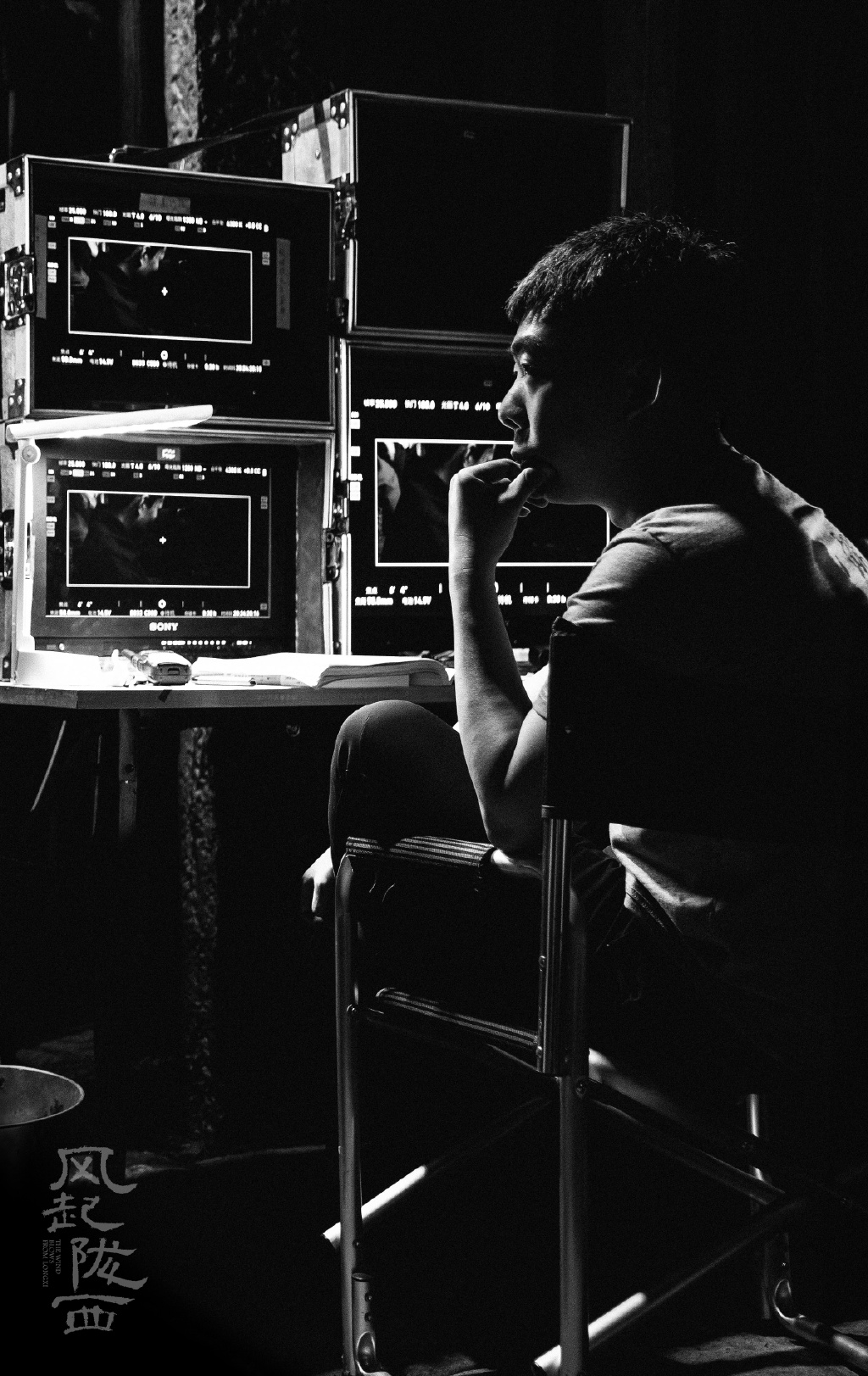
Lu Yang liked this script very much, "I have always been interested in the details of history, and I actually like to look for those details of the era that are not recorded in the official history, or even have no record." " is a brand new theme of the Three Kingdoms. Under the coat of ancient costume, it brings rare spy warfare and workplace elements in this genre. "Aside from what I just said, the exploration of the fate of small figures in history is attractive to me. In addition, for those of us who create, 'new' is a particularly important thing, and it also has a fatal attraction to us."
In order to adapt to this "new", Lu Yang did indeed explore some new attempts in narrative and imagery in TV dramas in "The Wind in Longxi".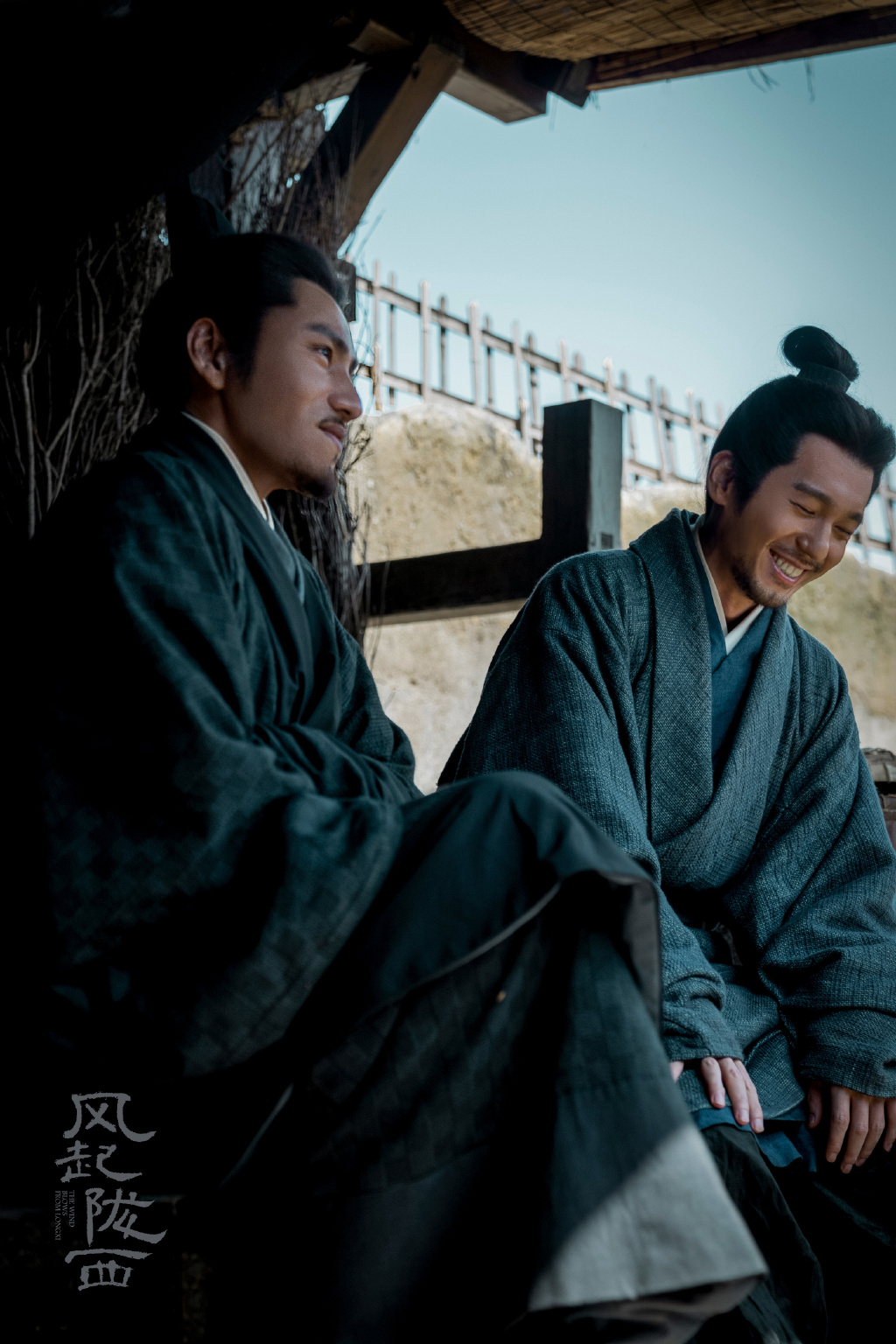
Secondly, since its broadcast, "Feng Qi Longxi" has evaluated the two polar audio-visual styles, dark and dull color palette, and a large number of scenes simulating natural light with a strong contrast between light and dark. Many audiences like it and feel "aesthetically advanced", but the reporter also pointed out that audiences are used to it. In view of the mainstream lighting and color matching styles in TV dramas, some people on the Internet also questioned: Why is it so dark?
Lu Yang said that from the perspective of light, the team hopes to use rich means to shape the atmosphere of the characters and to shape the characters. "I think that light and shadow are extremely important for the shaping of characters. We use a lot of lighting equipment and lighting methods to simulate a natural light frame, which is actually quite laborious, but I think the effect of this natural light is sticky. It fits the era and the kind of temperament that this story needs. Of course, I think the production method you mentioned is popular with many audiences, but I think, such content, the audience has enough choices. We definitely want to provide the audience with some other options, including using the contrast of light to enhance the mood of the characters. The so-called 'dark' may be compared to some other works, we will need a contrast and contrast of light and dark, And actually 'dark' is relative. Even in the dark part, we have retained enough details, not to mention the performance. Even in the dark part, the folds of the clothes and the texture of the wood can be seen very well. clear."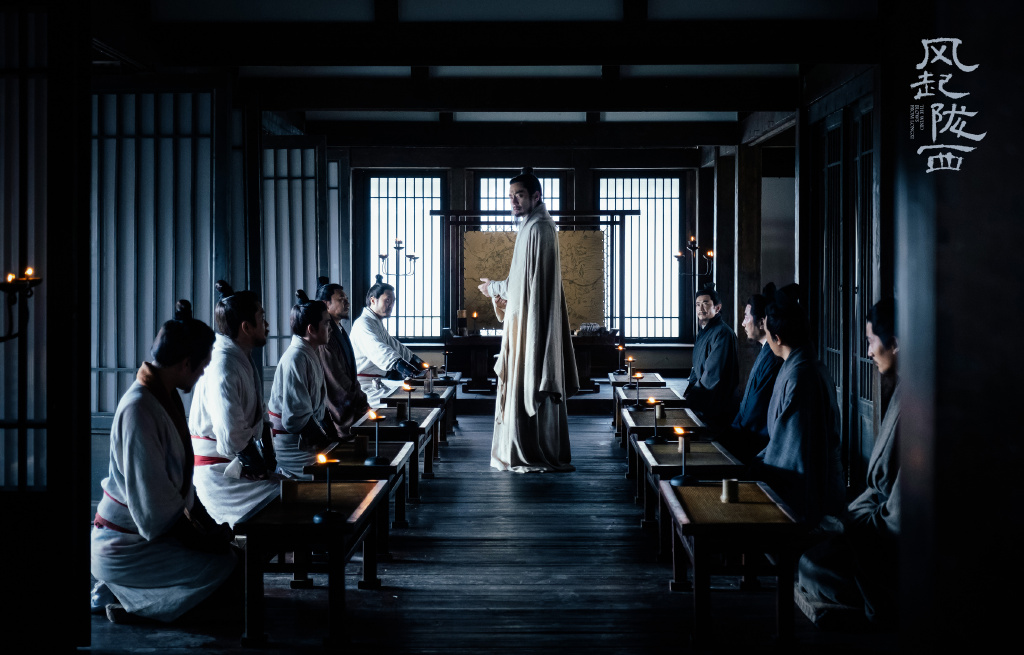
Lu Yang believes that the action design must conform to the temperament of the story itself and the feeling of the times. For this reason, he communicates a lot with the action director. "What we chose is a kind of action feeling that is biased towards military fighting, which is short and smooth, efficient, without tricks or postures, because this story is actually mainly based on the dark atmosphere of spy warfare, and there are not many action scenes, but there must be less And Jing, sharp, quick and powerful, can also reflect the state of the characters and the contrast of the characters. Maybe a gentle and gentle spy seems to be very kind, but when he shoots, he is swift and deadly."
In Lu Yang's view, action drama and literary drama must be unified in one system. "Action drama is also a drama, it also needs the curve of the drama, and it is also a way to advance the story, not just a fight. Action drama is an externalized performance, and ultimately it must fall into the drama, so as to achieve unity with the characters. ."
For the "unification" of details, Lu Yang has other obsessions. The story of "Wind in Longxi" involves Wei and Shu, and Luyang has made detailed designs for the environment, appliances, colors and even climate of the two places. "For example, because of differences in climate and geographical location, people in different places have different living habits, and the natural materials they use in their lives are also different."
For Cao Wei's play, the team tried to make Cao Wei's physical space feel dry, and the utensils used were mainly clay; while the environment in Shu Kingdom was more cloudy and rainy, with hazy mist and rain, clouds covered fog, and the house was made of more material. Most of them are wood and bamboo, and the utensils are mainly wood and bamboo. In "Wind in Longxi", you can notice that the walls of the houses in Shu are often wet, and the grass and leaves are dripping with water. Compared with Cao Wei, the vegetation in Shu is more abundant and diverse in front of the camera. Even the ambient sound is taken into account, the cicadas and birds in the woods, the sound of dripping water in the rainy night, these details are easy to say, but in recent years, costume dramas are often ignored or even forgotten details.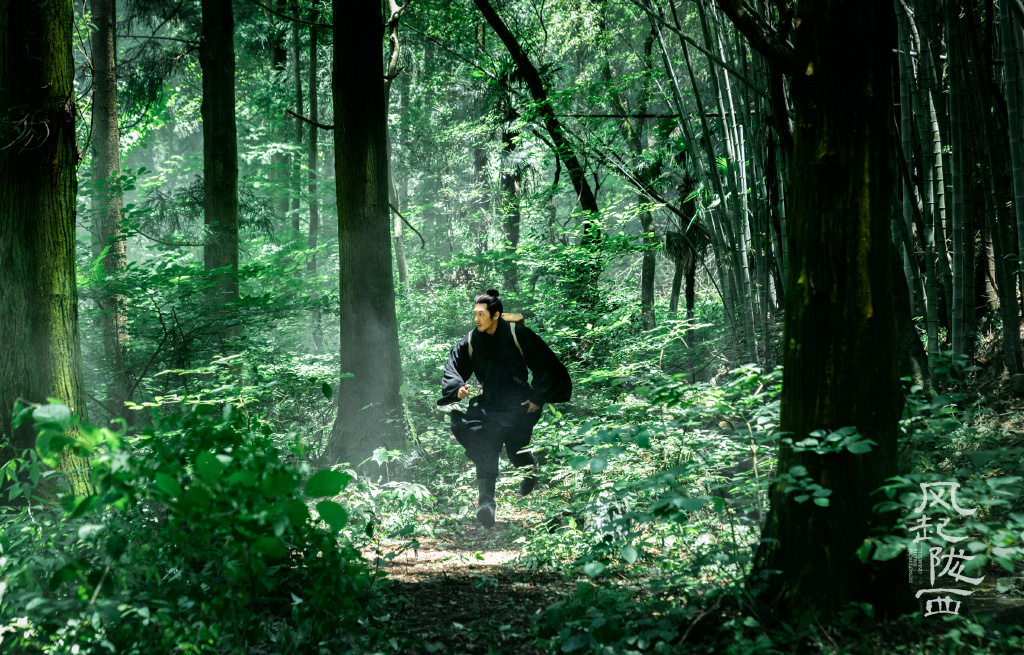
In the lines of "Feng Qi Longxi", there are not only the original text of Zhuge Liang's "Apprenticeship", but also "dry goods" and "shaking smart" and other words that are very "modern" in the eyes of the audience. In the performance of actors, many of the unique performance paradigms in costume dramas have also been put aside, and they are more relaxed or "modern".
Lu Yang believes that no matter what era of story is created, it is necessary to look for the connection and commonality between the characters in the play and the "people of the moment". "I don't want to express a character of a certain era according to a certain paradigm. No matter what kind of character state he presents to the audience, what is more important is whether we can feel the truth and heart of the character."
At the same time, Lu Yang also tried to see what kind of chemical reaction it would bring by constructing different contexts in the drama. He took the movie "Embroidered Spring Knife" as an example: "We used a northern language system to construct a context at that time, it was concise, with a hint of ancient meaning, but it was not ancient, it was vernacular, it was not real The way people spoke in the Ming Dynasty was actually constructed."
Speaking of the Three Kingdoms, Lu Yang pointed out, "When Luo Guanzhong wrote "Romance of the Three Kingdoms", he also used some original texts in "Three Kingdoms", but many characters used vernacular when choosing words and sentences. For readers who belonged to the same era as Luo Guanzhong For example, he used the language of their time. The advantage of this is that it makes it easier for readers to substitute.”
In "Feng Qi Longxi", Zhuge Liang's scene in front of Liu Chan will also use some of the original text of "Apprenticeship", "But we need to put annotations so that the audience can absorb and understand the information at the first time, so that the audience can feel the characters. Inner emotions." And more often, "Feng Qi Longxi" uses more colloquial lines because they are "closer to the current audience". "Language is constantly enriched and changed with the development of the times. To give a simple example, such as the word 'freedom', in fact, it existed in ancient times, but the meanings of ancient times and now are different. In our narrative, we must Reduce this language ambiguity, so that the audience can understand the first time, follow the plot and approach the characters without obstacles." Lu Yang said.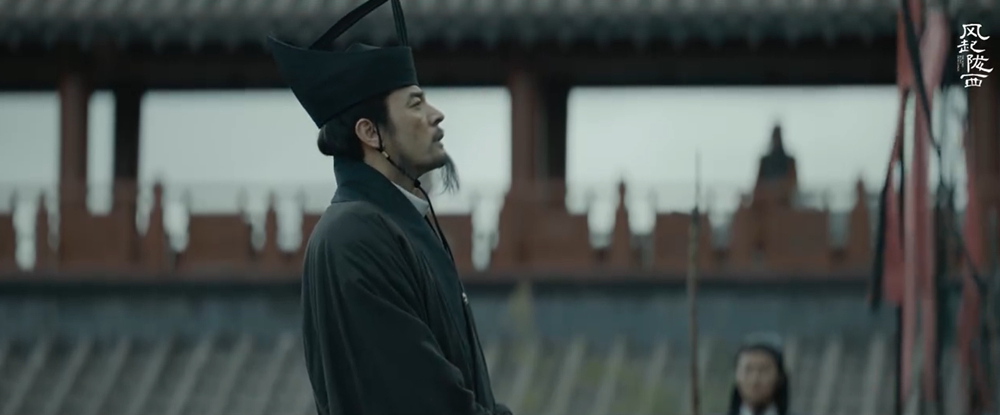
Compared with movies, TV dramas have their own unique set of ecology and production methods. Lu Yang admitted, "It really cannot be created and produced in the way of movies." "The precision of it is different from that of a movie. You shoot a two-hour movie in three or four months, and you shoot a series with a total length of nearly 1,000 minutes in three or four months. The way of working must be different." Lu Yang admits, "We feel that no matter what form of creation, we must try to find space to make it more interesting and beautiful under the existing conditions, try to make the audience feel comfortable in audio and visual, and maybe make them feel more comfortable. It's beautiful, and that must be our purpose."
"I think there is a requirement: we have no regrets in the creation." However, in a more limited time than movies, to create a TV series that "leave no regrets" in terms of details and aesthetics, the conditions for achieving it are even more harsh. "We must make the best use of all conditions. For example, in terms of time, we will try to use the time as much as possible, make full preparations in the early stage, think in advance, design rationally, and reasonably calculate and arrange everyone's work and physical fitness. In a limited time, its execution will not be compromised; then we must have the ability to judge on the shooting site, for example, in the current environment, what level can we do is the best, and then spend more time and energy, Is it effective or what is the price/performance ratio.”
Strict calculations and preparations require a very high degree of tacit understanding of the team. Fortunately, many of the creative team of "Feng Qi Longxi" have cooperated with Lu Yang for more than eight years, or even ten years, and they have a tacit understanding. "In a relatively compact creative condition, such a tacit understanding is necessary, it can save a lot of communication costs, and we have a very consistent aesthetic pursuit, and we can continue to inspire each other and constantly put forward effective suggestions and core ideas. important."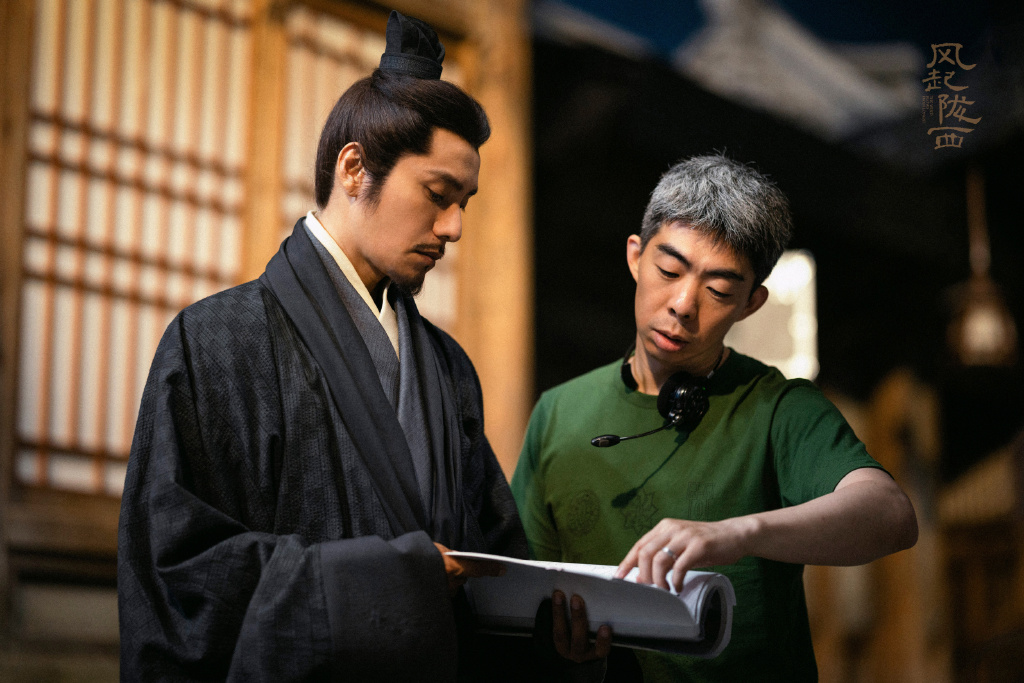
"Absolute insistence means insisting on the right things, the right thoughts and ideas, maybe not from me, maybe from an on-site staff member who mentioned a good suggestion, then we must boldly overthrow the original Design. But if we think that the original design is good after analysis and judgment, no matter how loud the voice is against it, we must insist on the right way to create.” He believes that the director’s judgment should be Judgments about "creative heart", not about "self", "'must do what I want', that's not what it means."
In the film and television industry, creators' pursuit of "new" is often associated with greater risks than conventional works. Lu Yang is very clear that the creation of film and television, whether it is a drama or a movie, is inseparable from the commercial system. Both art films and genre films have commodity attributes.
"But good content producers will definitely use a large number of high-quality works of different forms to conduct various explorations. Among them, on the one hand, it is commercial exploration, and on the other hand, it is content and artistic exploration." Lu Yang He pointed out, "But in any case, solving the viewability is a fundamental, even art films need the audience, you have to make the audience feel good-looking, use various means to make it possible, make it a popular narrative, let the audience You can enjoy the fun of this story in it, which is a principle that cannot be forgotten: good-looking and innovative, it is not contradictory.”
"We always want to find new themes, new content, and tell new stories to the audience. In fact, the difficulty is not new, but the difficulty is the lack of experience brought by the new. We have to explore, and maybe we have to take some detours." Lu Yang said, "But I think interesting things, attractive things, are always accompanied by this kind of difficulty that needs to be experienced, which complement each other."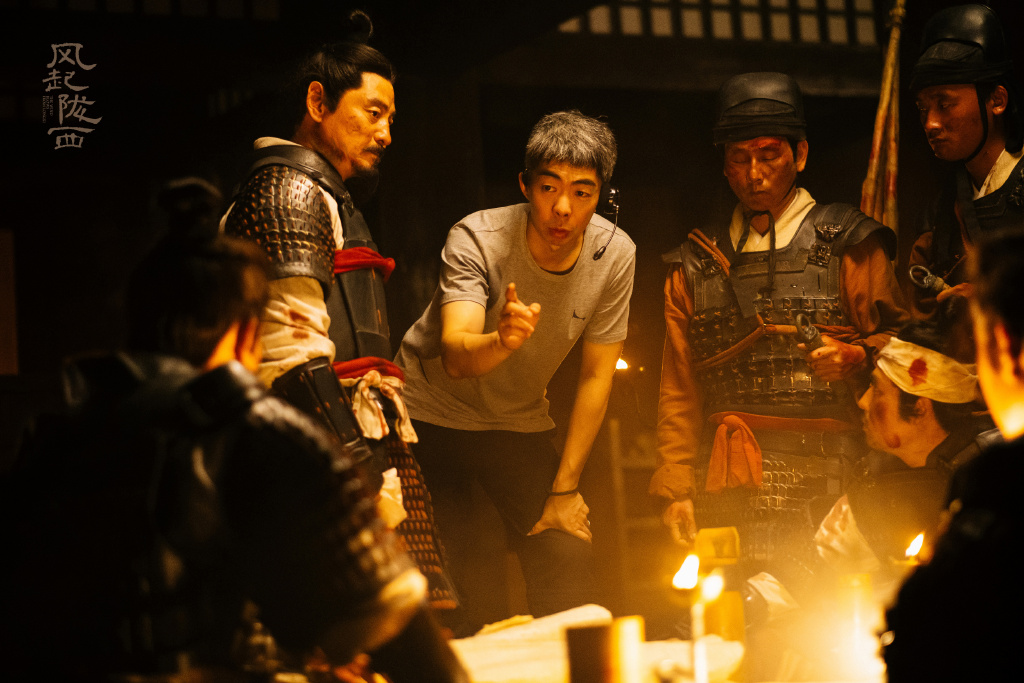
“As creators, we all look forward every day to the joy of creating, and to that amazing moment in creation—whether it’s a good shot or an unexpected performance from an actor. That expectation will sustain Our work every day."
Lu Yang was very excited at first, but after thinking about it, he felt that it was a pity to make a movie, "Because there are a lot of characters, clues and content in the original book, the volume of the movie means a lot of cuts." After thinking about it, Lu Yang suggested to the other party , should be considered for a drama. "When making a TV series, you can retain and enrich the interesting clues and content of the original work as much as possible on the basis of retaining the core of the original work."
Lu Yang's previous works were mainly movies. The series "Embroidered Spring Knife" and "Assassination of Novelists" were very popular and sold, but there were not many TV series. At that time, Lu Yang thought that if it was a drama, Xinli would find another director. Unexpectedly, after half a year, Xinli came to him with the script of "Feng Qi Longxi". "It was a surprise and a surprise. I didn't expect them to trust me to complete the creation of this TV series."

Director Lu Yang
"New" Fatal AttractionLu Yang liked this script very much, "I have always been interested in the details of history, and I actually like to look for those details of the era that are not recorded in the official history, or even have no record." " is a brand new theme of the Three Kingdoms. Under the coat of ancient costume, it brings rare spy warfare and workplace elements in this genre. "Aside from what I just said, the exploration of the fate of small figures in history is attractive to me. In addition, for those of us who create, 'new' is a particularly important thing, and it also has a fatal attraction to us."
In order to adapt to this "new", Lu Yang did indeed explore some new attempts in narrative and imagery in TV dramas in "The Wind in Longxi".

Stills of "The Wind Rises in Longxi"
First of all, under the trend of domestic TV dramas in recent years, "no matter what the theme, you have to force love scenes", there is very little love in "The Wind in Longxi". In Lu Yang's view, emotion is indeed indispensable in a story, and a story without emotion is definitely impossible to read. "But this emotion doesn't have to be just love. There are many kinds of emotions, emotions for friends, emotions for colleagues, emotions for the people and the country, and even for an opponent, sometimes you will have respect in your heart, and the opponent will disappear. , it will also make you sad and lonely."Secondly, since its broadcast, "Feng Qi Longxi" has evaluated the two polar audio-visual styles, dark and dull color palette, and a large number of scenes simulating natural light with a strong contrast between light and dark. Many audiences like it and feel "aesthetically advanced", but the reporter also pointed out that audiences are used to it. In view of the mainstream lighting and color matching styles in TV dramas, some people on the Internet also questioned: Why is it so dark?
Lu Yang said that from the perspective of light, the team hopes to use rich means to shape the atmosphere of the characters and to shape the characters. "I think that light and shadow are extremely important for the shaping of characters. We use a lot of lighting equipment and lighting methods to simulate a natural light frame, which is actually quite laborious, but I think the effect of this natural light is sticky. It fits the era and the kind of temperament that this story needs. Of course, I think the production method you mentioned is popular with many audiences, but I think, such content, the audience has enough choices. We definitely want to provide the audience with some other options, including using the contrast of light to enhance the mood of the characters. The so-called 'dark' may be compared to some other works, we will need a contrast and contrast of light and dark, And actually 'dark' is relative. Even in the dark part, we have retained enough details, not to mention the performance. Even in the dark part, the folds of the clothes and the texture of the wood can be seen very well. clear."

Stills of "The Wind Rises in Longxi"
Then there are the action scenes. The action scenes in "The Wind Rises in Longxi" have abandoned all the flashiness, and the moves are concise and straightforward. An assassination often ends in an instant. This kind of action design is actually rare in costume dramas, and it is not simple. The less fancy action design, the more the director's grasp of the rhythm, feeling and scheduling of the action scene will be tested.Lu Yang believes that the action design must conform to the temperament of the story itself and the feeling of the times. For this reason, he communicates a lot with the action director. "What we chose is a kind of action feeling that is biased towards military fighting, which is short and smooth, efficient, without tricks or postures, because this story is actually mainly based on the dark atmosphere of spy warfare, and there are not many action scenes, but there must be less And Jing, sharp, quick and powerful, can also reflect the state of the characters and the contrast of the characters. Maybe a gentle and gentle spy seems to be very kind, but when he shoots, he is swift and deadly."
In Lu Yang's view, action drama and literary drama must be unified in one system. "Action drama is also a drama, it also needs the curve of the drama, and it is also a way to advance the story, not just a fight. Action drama is an externalized performance, and ultimately it must fall into the drama, so as to achieve unity with the characters. ."
For the "unification" of details, Lu Yang has other obsessions. The story of "Wind in Longxi" involves Wei and Shu, and Luyang has made detailed designs for the environment, appliances, colors and even climate of the two places. "For example, because of differences in climate and geographical location, people in different places have different living habits, and the natural materials they use in their lives are also different."
For Cao Wei's play, the team tried to make Cao Wei's physical space feel dry, and the utensils used were mainly clay; while the environment in Shu Kingdom was more cloudy and rainy, with hazy mist and rain, clouds covered fog, and the house was made of more material. Most of them are wood and bamboo, and the utensils are mainly wood and bamboo. In "Wind in Longxi", you can notice that the walls of the houses in Shu are often wet, and the grass and leaves are dripping with water. Compared with Cao Wei, the vegetation in Shu is more abundant and diverse in front of the camera. Even the ambient sound is taken into account, the cicadas and birds in the woods, the sound of dripping water in the rainy night, these details are easy to say, but in recent years, costume dramas are often ignored or even forgotten details.

Stills of "The Wind Rises in Longxi"
All kinds of details aim to create a dramatic field that belongs to this story, so that everything that happens in this dramatic field is worthy of being believed. But in a story of ancient costumes, all aspects of clothing, Taoism, etc. are actually distanced from the audience. How to shorten the distance between the audience and the characters in the story, Lu Yang believes, is language.In the lines of "Feng Qi Longxi", there are not only the original text of Zhuge Liang's "Apprenticeship", but also "dry goods" and "shaking smart" and other words that are very "modern" in the eyes of the audience. In the performance of actors, many of the unique performance paradigms in costume dramas have also been put aside, and they are more relaxed or "modern".
Lu Yang believes that no matter what era of story is created, it is necessary to look for the connection and commonality between the characters in the play and the "people of the moment". "I don't want to express a character of a certain era according to a certain paradigm. No matter what kind of character state he presents to the audience, what is more important is whether we can feel the truth and heart of the character."
At the same time, Lu Yang also tried to see what kind of chemical reaction it would bring by constructing different contexts in the drama. He took the movie "Embroidered Spring Knife" as an example: "We used a northern language system to construct a context at that time, it was concise, with a hint of ancient meaning, but it was not ancient, it was vernacular, it was not real The way people spoke in the Ming Dynasty was actually constructed."
Speaking of the Three Kingdoms, Lu Yang pointed out, "When Luo Guanzhong wrote "Romance of the Three Kingdoms", he also used some original texts in "Three Kingdoms", but many characters used vernacular when choosing words and sentences. For readers who belonged to the same era as Luo Guanzhong For example, he used the language of their time. The advantage of this is that it makes it easier for readers to substitute.”
In "Feng Qi Longxi", Zhuge Liang's scene in front of Liu Chan will also use some of the original text of "Apprenticeship", "But we need to put annotations so that the audience can absorb and understand the information at the first time, so that the audience can feel the characters. Inner emotions." And more often, "Feng Qi Longxi" uses more colloquial lines because they are "closer to the current audience". "Language is constantly enriched and changed with the development of the times. To give a simple example, such as the word 'freedom', in fact, it existed in ancient times, but the meanings of ancient times and now are different. In our narrative, we must Reduce this language ambiguity, so that the audience can understand the first time, follow the plot and approach the characters without obstacles." Lu Yang said.

Screenshot of "The Wind Rises in Longxi"
"No regrets in creation"Compared with movies, TV dramas have their own unique set of ecology and production methods. Lu Yang admitted, "It really cannot be created and produced in the way of movies." "The precision of it is different from that of a movie. You shoot a two-hour movie in three or four months, and you shoot a series with a total length of nearly 1,000 minutes in three or four months. The way of working must be different." Lu Yang admits, "We feel that no matter what form of creation, we must try to find space to make it more interesting and beautiful under the existing conditions, try to make the audience feel comfortable in audio and visual, and maybe make them feel more comfortable. It's beautiful, and that must be our purpose."
"I think there is a requirement: we have no regrets in the creation." However, in a more limited time than movies, to create a TV series that "leave no regrets" in terms of details and aesthetics, the conditions for achieving it are even more harsh. "We must make the best use of all conditions. For example, in terms of time, we will try to use the time as much as possible, make full preparations in the early stage, think in advance, design rationally, and reasonably calculate and arrange everyone's work and physical fitness. In a limited time, its execution will not be compromised; then we must have the ability to judge on the shooting site, for example, in the current environment, what level can we do is the best, and then spend more time and energy, Is it effective or what is the price/performance ratio.”
Strict calculations and preparations require a very high degree of tacit understanding of the team. Fortunately, many of the creative team of "Feng Qi Longxi" have cooperated with Lu Yang for more than eight years, or even ten years, and they have a tacit understanding. "In a relatively compact creative condition, such a tacit understanding is necessary, it can save a lot of communication costs, and we have a very consistent aesthetic pursuit, and we can continue to inspire each other and constantly put forward effective suggestions and core ideas. important."

"The wind rises in Longxi" studio photo
As for creation, the creators of each department of "The Wind in Longxi" are "hard-hearted" and "all want to be something new and good." On the basis of trusting the team, as a director, Lu Yang believes, "First of all, don't be too selfish, but at the same time, you must be absolutely persistent.""Absolute insistence means insisting on the right things, the right thoughts and ideas, maybe not from me, maybe from an on-site staff member who mentioned a good suggestion, then we must boldly overthrow the original Design. But if we think that the original design is good after analysis and judgment, no matter how loud the voice is against it, we must insist on the right way to create.” He believes that the director’s judgment should be Judgments about "creative heart", not about "self", "'must do what I want', that's not what it means."
In the film and television industry, creators' pursuit of "new" is often associated with greater risks than conventional works. Lu Yang is very clear that the creation of film and television, whether it is a drama or a movie, is inseparable from the commercial system. Both art films and genre films have commodity attributes.
"But good content producers will definitely use a large number of high-quality works of different forms to conduct various explorations. Among them, on the one hand, it is commercial exploration, and on the other hand, it is content and artistic exploration." Lu Yang He pointed out, "But in any case, solving the viewability is a fundamental, even art films need the audience, you have to make the audience feel good-looking, use various means to make it possible, make it a popular narrative, let the audience You can enjoy the fun of this story in it, which is a principle that cannot be forgotten: good-looking and innovative, it is not contradictory.”
"We always want to find new themes, new content, and tell new stories to the audience. In fact, the difficulty is not new, but the difficulty is the lack of experience brought by the new. We have to explore, and maybe we have to take some detours." Lu Yang said, "But I think interesting things, attractive things, are always accompanied by this kind of difficulty that needs to be experienced, which complement each other."

"The wind rises in Longxi" studio photo
"Take movies as an example. The emergence of movies is a kind of technological innovation. The content of movies is the constant innovation and exploration of countless creators for more than 100 years, which keeps it alive. Audiences always want to see fresh stories, Fresh people and moving emotions." Lu Yang believes that the joy of creation lies in "we have to solve the problem". After solving it, it may bring a new choice to the audience. This process Undoubtedly with an unknown sense of adventure. "Literary and artistic creation should never be static, and literary and artistic creation should have an adventurous spirit."“As creators, we all look forward every day to the joy of creating, and to that amazing moment in creation—whether it’s a good shot or an unexpected performance from an actor. That expectation will sustain Our work every day."
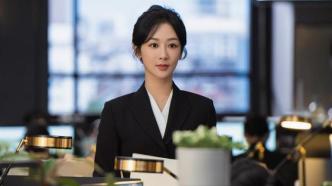
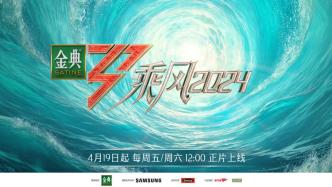
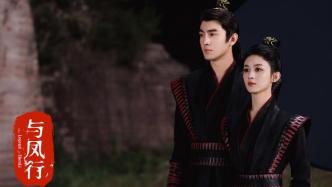

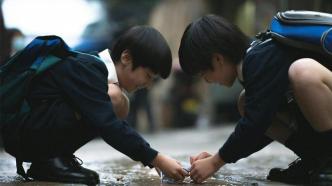
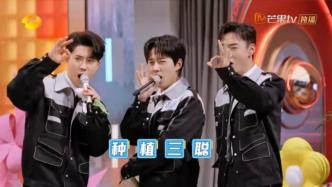
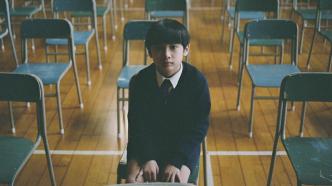
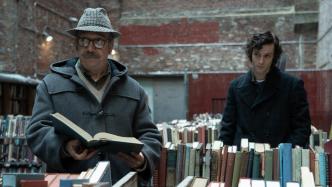

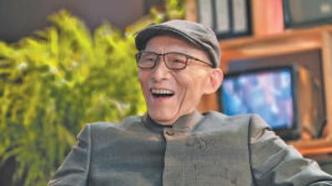
Comments